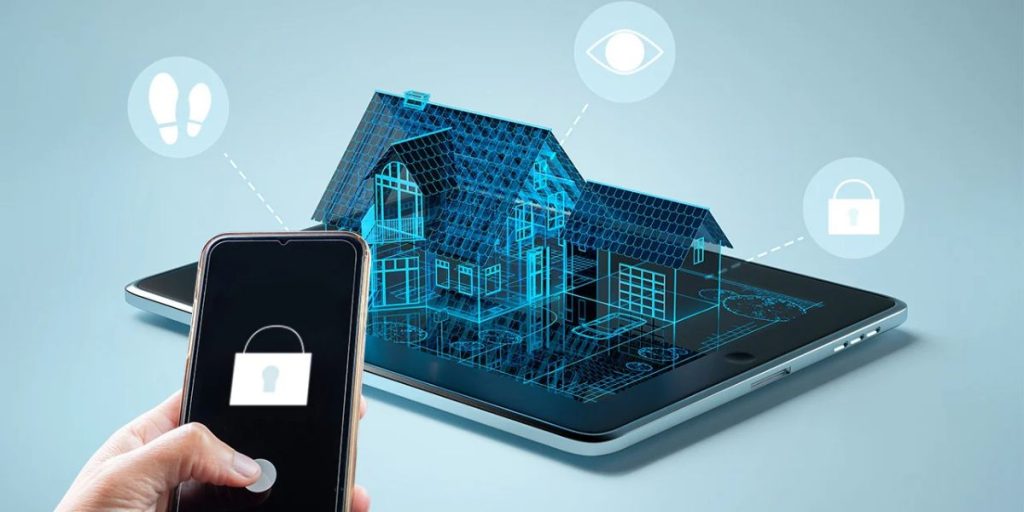
Ever pondered how home security systems really protect your house? Is it merely about triggering an alarm, or does more occur unseen? In our current society, safety is paramount. Knowing how these systems function can inform your choices regarding home security and the safety of your family. Using a series of sophisticated equipment, like motion detectors and cameras, as well as alarms and smart links, home security systems identify, warn, and avert possible hazards.
Let’s Explore
- What are the components of a Home Security System?
- How Does a Home Security System Work?
- What are the Different Types of Home Security Systems?
- Benefits of Using a Home Security System?
- How to Choose the Right Home Security System?
What are the components of a Home Security System?
Imagine a home security system as your home’s dedicated bodyguard—a reliable set of tools that safeguard your property even when you’re not around. It protects against break-ins, theft, and potential hazards like gas leaks or fires. This security team includes sensors, cameras, and alarms, all managed through a central control panel. With our protection service, you get advanced protection, real-time monitoring, and professional support, ensuring your home stays safe and secure 24/7.
Control Panel
The control panel is the brain of your home security system. It connects all devices and allows you to control them. You can arm or disarm the system, view alerts, and sometimes even monitor live feeds from cameras. Modern control panels are often touchscreen and can be controlled remotely via smartphones.
Sensors
Sensors play a key role in detecting unauthorised access or potential dangers.
- Door and Window Sensors: These alert you when a door or window is opened while the system is armed.
- Motion Sensors: Identify and scrutinize motion within designated zones of your residence, instigating an alarm upon detection.
- Glass Break Sensors: Identify the sound of breaking glass and alert you instantly.
Security Cameras
Security cameras monitor your property and record video footage.
- Indoor Cameras: Keep an eye on the inside of your home.
- Outdoor Cameras: Monitor the perimeter of your property.
- Doorbell Cameras: Let you see and communicate with visitors at your doorstep.
Alarms
Sirens, the most recognizable feature of security systems, serve as alarms. Their loud sound warns those around while frightening away unwanted guests.
Environmental Sensors
Some systems include sensors for detecting smoke, carbon monoxide, or water leaks, helping protect your home from non-burglary-related emergencies.
Monitoring Service
An expert watchdog team can keep an eye on your safety setup round the clock. If the alarm rings, the watch center gets informed and can buzz the emergency helper if required.
How do Home Security Systems Work?

Arming the System
You start by arming the system using the control panel, smartphone app, or voice command. This activates all the sensors and cameras.
Monitoring for Threats
Once activated, the system meticulously monitors your home for any anomalies. Advanced devices and cameras vigilantly detect unauthorized access and suspicious movements.
If a door sensor registers an unauthorized entry, it promptly transmits a signal to the control panel. Meanwhile, motion sensors identify activity in secured zones, triggering immediate alerts.
For unparalleled security and peace of mind, call us today!
Alert and Response
When a threat is detected:
- Immediate Alerts: The system sends alerts to your smartphone and triggers an alarm to warn you and scare intruders.
- Professional Monitoring: If connected to a monitoring service, they will verify the threat and contact emergency services if necessary.
What are the Different Types of Home Security Systems?
Wired Security Systems
These systems connect devices using physical wires. They are reliable but require professional installation.
Wireless Security Systems
Using Wi-Fi or cellular signals, wireless systems link parts together. They offer easy installation plus flexibility, exactly what renters or movers need.
DIY Security Systems
You take care of setting up and checking DIY systems. They are generally less pricey, but they don’t come with professional supervision services.
Professionally Monitored Systems
These systems are installed and monitored by security companies, providing a higher level of safety and convenience.
Benefits of Using Home Security System

Crime Deterrent & Prevention
Often, just the existence of video cameras can scare off would-be wrongdoers. This reduces incidents like theft, vandalism and more.
Evidence Collection for Investigation
During a crime, wiretapping cameras play a crucial role, providing vital footage that significantly aids court cases, police investigations, and insurance claims.
Call us today to enhance your security with advanced surveillance solutions!
Improving the Safety of Employees and Assets
Security cameras are great at keeping staff safe within the company. They keep a check on their activities and lower risks. Plus, they prevent damage or loss to the firm’s worth.
Monitoring of Additional and Remote Locations
In some companies or workplaces, especially those in far-off places or with multiple branches, security cameras serve as a key tool. They offer a unified spot to monitor all goings-on across each office or site.
Lowering the Cost of Insurance Policies
A number of insurance companies provide rebates on the costs of insuring such buildings with CCTV systems fitted due to the low risks involved in such surveillance.
How to Choose the Right Home Security System?
Assess Your Needs
Consider your home’s size, location, and specific vulnerabilities. For example, large homes may need more cameras and sensors.
Set a Budget
Decide how much you’re willing to spend on installation, equipment, and monthly monitoring fees.
Research Features
Look for features like remote access, compatibility with smart devices, and coverage for environmental hazards.
Professional vs. DIY
Choose between professional installation and monitoring or setting up and maintaining the system yourself.
Conclusion
Securing your home and family relies on a good security system, making it a smart buy. Understanding how these systems work guides you to the right choice for your needs and maximizes benefits. Making your home safe is now straightforward, whether you prefer a basic DIY setup or a pro-monitored system. So, begin now and enjoy the peace of mind a quality security system provides!
Need assistance? Contact us to connect with our expert team. We’re dedicated to resolving your queries quickly and efficiently. Don’t wait—reach out today and let us provide the help you deserve!
